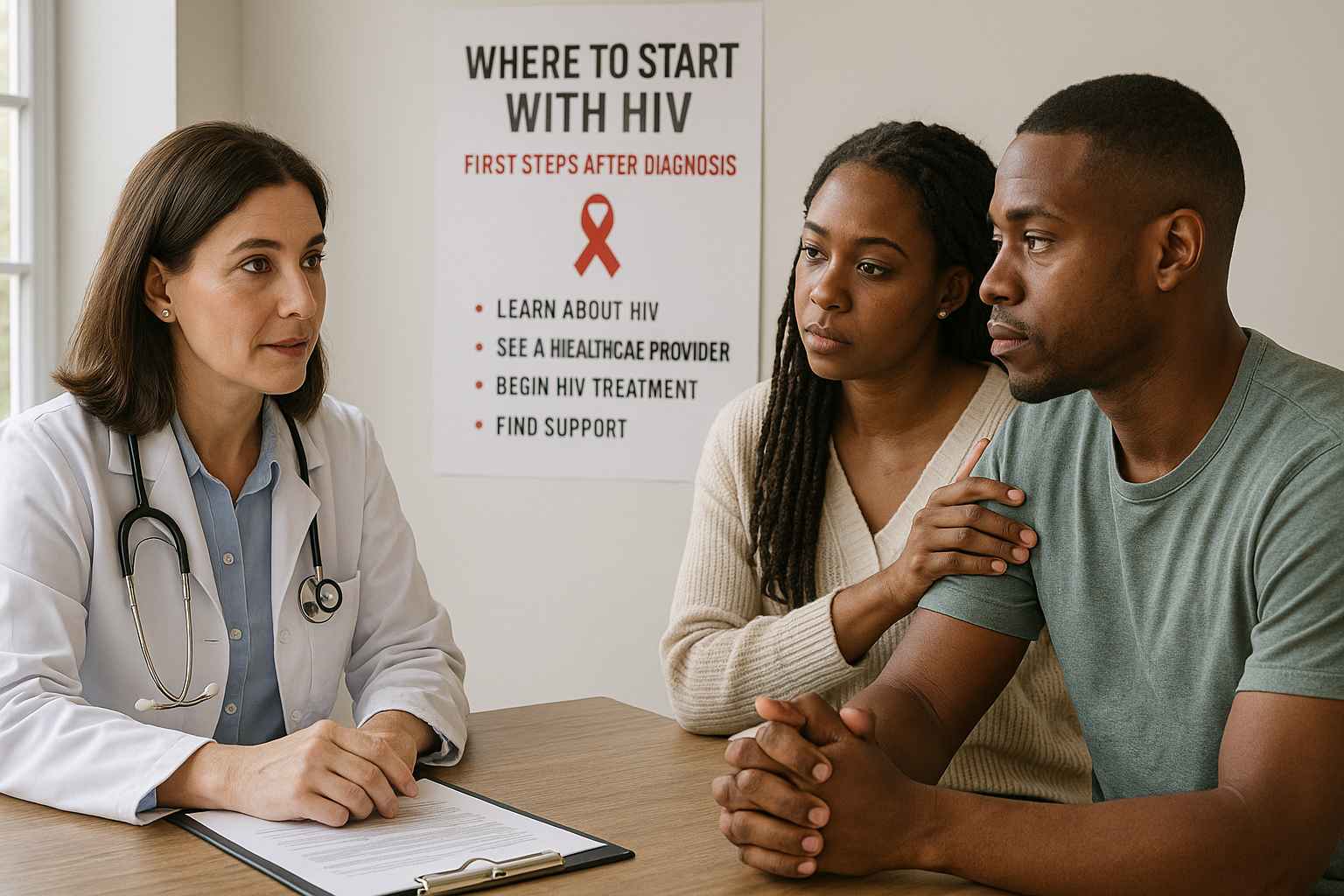Receiving an HIV diagnosis can feel overwhelming. Questions race through your mind—what does this mean for your future, your health, your relationships? If you’re wondering where to start with HIV, know that you’re not alone. Millions have been where you are and have gone on to live long, healthy, and fulfilling lives. Let’s walk through the steps to take after an HIV diagnosis, so you can move forward with confidence and support.
Table of Contents
- Understanding Your Diagnosis
- Finding the Right Healthcare Provider
- Starting Treatment and Managing HIV
- Emotional and Community Support
- Conclusion
- FAQs
Understanding Your Diagnosis
After being diagnosed with HIV, it’s crucial to understand what the virus is—and what it isn’t. HIV (human immunodeficiency virus) affects the immune system by targeting CD4 cells, which help fight infections. Left untreated, it can lead to AIDS (acquired immunodeficiency syndrome). But with today’s treatments, most people with HIV never develop AIDS.
The first step is to get a full picture of your health. This includes a CD4 count, viral load test, and screening for other infections. These results help your doctor determine the best course of treatment. Don’t hesitate to ask questions or seek a second opinion—this is your journey, and you deserve clarity and peace of mind.
Finding the Right Healthcare Provider
Choosing a healthcare provider experienced in HIV care is essential. Look for someone who listens, explains clearly, and supports your decisions. You might start by asking for referrals from local clinics or searching through directories provided by organizations like HIV.gov.
Many HIV clinics offer case managers who can assist with navigating insurance, medication programs, and transportation. They can also help you apply for resources like the Ryan White HIV/AIDS Program, which provides care for low-income individuals. You can also use Healthcare.pro to connect with trusted medical professionals in your area.
Starting Treatment and Managing HIV
Antiretroviral therapy (ART) is the cornerstone of HIV treatment. It helps reduce your viral load to undetectable levels, meaning the virus can’t be transmitted through sex—a concept known as U=U (Undetectable = Untransmittable). Starting ART early improves long-term health outcomes, so don’t delay.
Your provider will tailor a treatment plan that fits your lifestyle and medical history. Once on medication, staying consistent is vital. Set reminders, use a pill organizer, or find support groups that help you stay on track. Most people experience few side effects and find the treatment manageable over time.
Emotional and Community Support
The emotional impact of an HIV diagnosis is real, and it’s okay to feel scared, angry, or confused. But support is available. Talking to a therapist or joining an HIV support group can help you process your feelings and build resilience.
Foundations like EJAF and amfAR fund programs that offer peer support, mental health care, and advocacy. Many also help you connect with others who’ve walked the same path. Online forums, local events, and social media communities offer safe spaces to share and learn.
Knowledge is power. The more you understand HIV, the less intimidating it becomes. With the right tools and community, you can thrive—not just survive.
Conclusion
Knowing where to start with HIV begins with education, empowerment, and connection. Getting diagnosed may feel like a setback, but it can also be the beginning of a healthier, more informed life. By taking the first steps—seeking care, starting treatment, and finding support—you’re already on the path to wellness. Remember, you’re not alone. Help is out there, and hope is real.
FAQs
What is the first thing I should do after an HIV diagnosis?
Schedule an appointment with a healthcare provider experienced in HIV care to begin treatment planning.
Is HIV still a life-threatening condition?
With proper treatment, people with HIV can live long, healthy lives. It is now considered a manageable chronic condition.
How soon should I start HIV treatment?
As soon as possible. Early treatment helps protect your immune system and prevents transmission to others.
Can I have relationships after an HIV diagnosis?
Absolutely. With an undetectable viral load, HIV cannot be sexually transmitted. Open communication and regular care make healthy relationships possible.
Where can I get emotional or peer support?
Look for support groups through HIV clinics, online communities, or mental health professionals. Visit Healthcare.pro to find local resources.
This content is not medical advice. For any health issues, always consult a healthcare professional. In an emergency, call 911 or your local emergency services.




